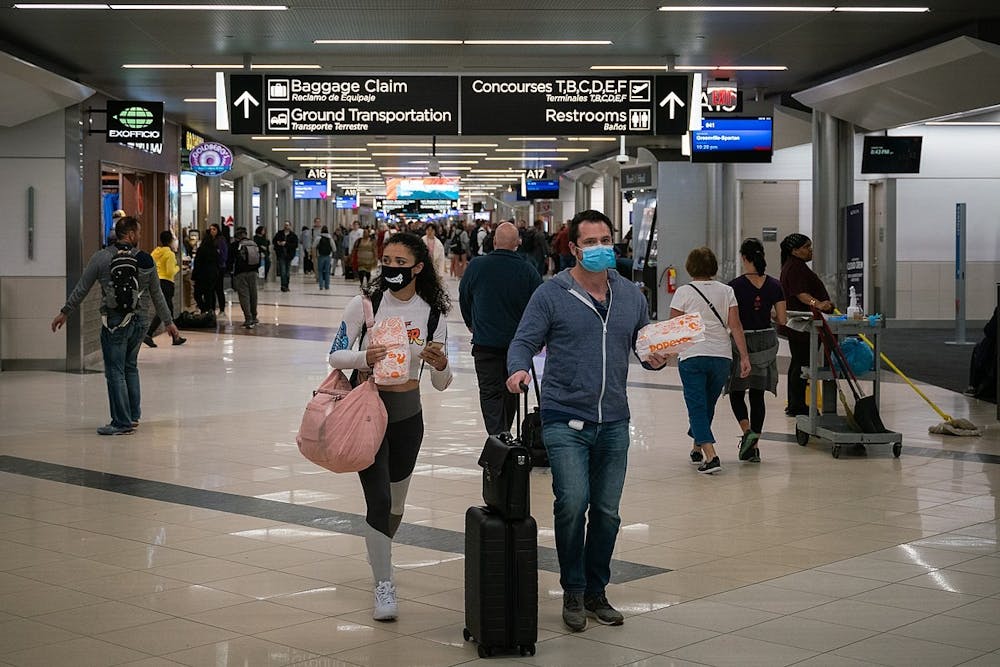COVID-19 has infected nearly 1,000,000 people worldwide, including over 200,000 in the United States as of April 1. The surge in novel coronavirus cases has created a dire shortage in personal protective equipment, leaving American doctors and nurses desperate for masks, respirators and gowns to protect against the spread of the virus. As a result, hospitals and healthcare providers have sought to import large quantities of medical gear from China, where most healthcare safety products are made. However, imported equipment from China has arrived at a “trickling” pace, leaving American healthcare providers significantly under-equipped to handle the increasing number of COVID-19 hospitalizations. Besides teaching us how America can better prepare for future public health crises, this shortage in vital medical equipment has also revealed the national security imperative for America to bring all essential manufacturing permanently back home.
Our shortage of N95 masks during the coronavirus pandemic provides a perfect example of the serious risks in offshoring essential manufacturing to China. In February, at the height of the coronavirus pandemic in China, the Chinese government “effectively nationalized” the Shanghai plant of the 3M Company, an American company that is one of the two large N95 mask producers for the U.S., meaning that the firm was forced to sell every unit produced to the Chinese government. In March, cases of COVID-19 began to mount in the U.S. while the situation in China stabilized, but mask exports to the U.S. have still been slow. According to the Associated Press, as of March 21, only 13 shipments of N95 masks have arrived in the past month, half the amount delivered in March 2019. Furthermore, 3M Company and Honeywell have faced bottlenecks in producing N95 face masks domestically because of delayed imports of raw materials controlled by China.
America’s shortage of masks cannot be characterized simply as an imbalance of supply and demand. In the last few weeks, Beijing has sought to establish global leadership by donating millions of masks and hundreds of thousands of respirators to Italy, South Korea and the Philippines. U.S. firms and healthcare organizations are not asking for aid from China — they are clamoring to pay for the equipment that U.S. companies are producing in China. In fact, the American mask shortage has led to U.S. states bidding against one another for masks at up to 10 times the usual cost. America’s inability to acquire a sufficient quantity of masks from China, despite the fact that China received more than 1.5 million masks donated by American firms, seems at least partially motivated by a political animus that has revealed itself through worsening hostility.
The Chinese government has been irate at the U.S. from the start of the pandemic, as it attacked Washington for pulling American citizens out of China and restricting travel to the country in early February. Then, its Foreign Ministry accused the U.S. Army of bringing the virus to China. Furthermore, Chinese administration announced March 17 that it would expel American journalists with The New York Times, The Wall Street Journal and The Washington Post. Now, China is restricting the flow of masks to America, exacerbating the major health crisis caused by COVID-19.
This episode has shown that America can no longer depend on Chinese exports of essential goods in times of emergency. Given the political hostility that China has displayed towards the U.S., such dependence poses a national security risk. Even if China and the U.S. enjoyed good relations, in the event of another global shortage of essential equipment, China would almost certainly prioritize satisfying its own needs, leaving America without adequate supply made by its own companies. As the current U.S. shortage of masks demonstrates, it would be too late for American firms to establish domestic production capabilities in a time of crisis, as retooling factories, training workers and acquiring raw inputs requires time. To ensure sufficient supply of vital items such as medical and industrial equipment, defense materiel, pharmaceuticals and semiconductors, especially in the case of a conflict with China, America must prepare today by mandating relevant companies to move manufacturing back to the U.S. For raw materials used in production, these American manufacturers should have backup suppliers in case supply from China dries up.
With this understanding, lawmakers should re-examine the offshoring decisions certain American firms have made. For example, Boeing’s decision, the U.S. aircraft manufacturer and defense contractor, to build a commercial aircraft plant near Shanghai in 2017 may leave America short of essential aircraft production capacity in the event of a military conflict. Tesla’s decision to build Gigafactory 3 in Shanghai has given China control over the firm’s enormous lithium ion battery cell production, a critical energy source for electronics. In 2004, the last American plant to produce ingredients for penicillin shut down, and today China supplies more than 90 percent of U.S. antibiotics, vitamin C, ibuprofen and hydrocortisone. While serving the interests of the corporations involved, all of these business moves have left American national security dangerously at risk, and Washington should overcome lobbying pressures and mandate that these and other sensitive firms bring production back home to America.
The news of doctors and nurses being forced to work without proper medical gear should catalyze leaders on both sides of the aisle to reduce America’s dependence on Chinese exports of essential output. Moving essential manufacturing permanently back home is a must. Such an act would not only safeguard national security, but also provide long-term benefits to the American worker and economy.
Richard Song is a third-year in the Commerce School.
The opinions expressed in this column are not necessarily those of The Cavalier Daily. Columns represent the views of the authors alone.







